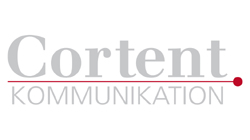The German Mittelstand
Intra-company generation turnover: SMEs call for clear guidelines

75 per cent of the new generation of likely successors in family-run SMEs are unwilling to settle for mere partnership roles and are seeking positions of operational power. This was the result of a survey presented at the beginning of November entitled “The Upcoming Generation of German Entrepreneurs” conducted by the Zeppelin University of Friedrichshafen jointly with the Familienunternehmen Foundation, interviewing 315 sons and daughters of entrepreneurial families aged between 16 and 40.
Commenting the survey, Stefan Heidbreder director of the Familienunternehmen Foundation pointed to the somewhat striking discovery that the majority of potential successors (549) could see themselves working in a team that included executives from outside. One of the most important aspects that emerged above all in large-scale family-run businesses was the much higher level of professionalism of this, as opposed to past generations. It therefore comes as no surprise that only 12 percent of interviewees could see themselves selling the family business.
Despite this surge in entrepreneurship, the “generation of heirs apparent” is fully aware of the areas of criticality. There is a real fear that the succession process be hamstrung by lack of regulatory clarity. Only one fifth of interviewees talk of hard and fast plans as to the roles and responsibilities of the respective generations involved in the succession process while 66% of family-run SMEs have no written code of basic rules. The means that that when there is ambiguity in the term of departure of the senior entrepreneur, for example, the risk of conflict, strife and interference is indeed high.
The survey reflects a strong feeling of comprehension on the part of the incoming generations. They show great awareness of the difficulties that their predecessors find themselves in, in taking on the mantle of mentor and sparring partner while giving away ever more scope and freedom to the young turks.
The seniors must therefore find and strike the balance between granting support and giving freedom. Written agreements can go some way to helping both sides to focus their efforts on what is really important in the succession process, namely furthering the long-term development of the company in the interests of all the stakeholders.















